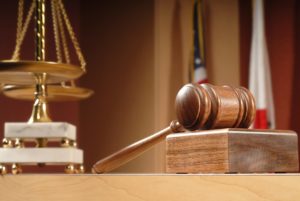Determining how to properly care for your family member after they become severely ill or incapacitated is difficult. There are various legal options available to aid your loved one, but it is important to choose one that is perfect for your unique situation. A guardianship and a power of attorney are essentially used for the same purpose, but each carries important distinctions that must be considered. If you or a family member wishes to know about guardianships and power of attorney agreements, you should consult with an experienced Pennsylvania guardianship lawyer. At Herr Potts and Potts, our elder law lawyers are prepared to provide you with the representation that is tailored to your unique needs. Herr Potts and Potts are here to discuss whether guardianships can override power of attorney in Pennsylvania.
What is a Guardianship?
A guardianship is usually considered for individuals who have become incapacitated. A person is considered incapacitated when they cannot make sound decisions regarding their physical health or financial matters or both. According to the Pennsylvania Bar Association, an individual may be incapacitated if they possess a “progressive mental illness” like Alzheimer’s or dementia. Physical or emotional illnesses may also be considered when determining if a person is incapacitated.
Any person interested in the incapacitated person’s welfare may file a petition with Pennsylvania Orphans’ Court to have a guardian appointed to handle their affairs. The alleged incapacitated person must receive written notice of the petition and of their right to retain or be appointed counsel.
To be judged incapacitated, there must be “clear and convincing evidence” that shows the individual needs a guardian to handle their affairs. This can be accomplished by using testimony from medical professionals who can evaluate the alleged incapacitated person. The alleged incapacitated person may also request the court to use a medical professional of their choosing to show they are not incapacitated. Pennsylvania will not approve a guardianship if an individual only suffers from occasional moments of confusion.
If the guardianship is approved, the guardian who is chosen must be willing to serve as the incapacitated person’s guardian. There are a few categories of possible guardians for an incapacitated person:
- Any qualified individual
- Corporate fiduciary
- Nonprofit corporation
- Guardianship support agency
- County agency
Family members of the incapacitated person are usually the first choice to serve as guardians. If you want to know more about guardianships or contesting guardianships, you should speak with an experienced estate planning attorney.
What is a Power of Attorney?
A power of attorney (POA) is a legal document that names an individual (agent) to act on behalf of the person who executed the document, also known as the “principal.”
There are two types of POAs: general POA and limited POA. General POA gives an agent wide discretion over the affairs of the principal. A limited POA gives the agent the power to handle specific tasks, like handling medical treatments for the principal. A guardian can also be authorized to act on behalf of an incapacitated person. However, the court will grant the guardian those powers because the incapacitated person is incapable of doing so.
A power of attorney agreement usually becomes invalid if the principal becomes incapacitated or loses their capacity to make decisions. However, this can be avoided by creating a “durable” POA. A durable POA stays in effect even after the principal is incapacitated. Fortunately, all POA documents executed in Pennsylvania are presumed to be durable unless otherwise stated. However, the principal must have executed the document when they had the “legal capacity” to do so. This means a principal cannot create a valid POA after they are incapacitated.
When Does a Guardianship Trump a POA?
A guardianship could override a power of attorney if the document was not created before a person became incapacitated. The purpose of a guardianship is to appoint an individual to care for a person who cannot care for themselves. Additionally, if for some reason the principal had created a POA that was not durable, the agent’s powers will terminate once the principal becomes incapacitated.
Therefore, if you prefer having a power of attorney instead of a guardianship, you should ensure you execute the document as soon as possible to avoid any future problems.
Our Attorneys Can Help You Create a Guardianship or POA
If you or a family member need to create a guardianship or power of attorney, you should speak with an experienced Pennsylvania elder law attorney. Herr Potts and Potts understand the hardships involved with caring for elderly or sick family members, and we are here to help you. Our attorneys are prepared to provide you with efficient and cost-effective counsel in your time of need. To schedule a confidential consultation, call us at (610) 254-0114 or reach us online.

